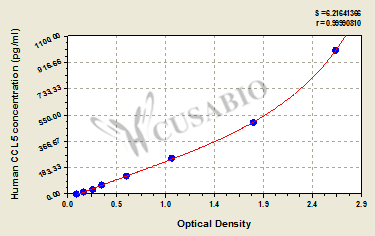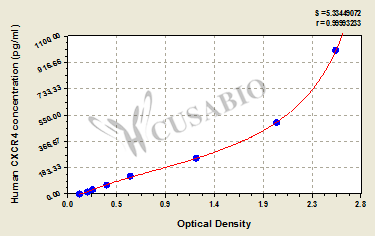Chemokine ELISA Kits
Chemokines are a class of cytokines that can guide the directed migration of cells. By binding to chemokine receptors, they regulate the migration and localization of immune cells and participate in physiological processes such as inflammatory response, immune response and tissue repair.
Classification and biological functions of chemokines
According to the number and spacing of cysteine at the N end of the peptide chain, chemokines can be divided into the following categories:
- CXC chemokine subfamily: It includes CXC1 to CXC17, with typical representation such as CXCL8/IL-8, which is able to attract and activate neutrophils, chemotactic them to the inflammatory sites, participate in the inflammatory response and play an anti-infectious role.
- CC chemokine subfamily: It includes CCL1 to CCL28, and the typical representation is CCL2/MCP-1, which can chemotactic monocytes and lymphocytes and participate in inflammation and immune cell convening.
- XC chemokine subfamily: It includes XCL1 and XCL2, mainly chemotacting mature T cells.
- CX3C chemokine subfamily: It includes CX3CL1, which plays an important role in chemotaxis and adhesion in the nervous system.
Chemokine receptors
Chemokine receptors are G-protein coupled receptors with seven transmembrane domains found on the surface of leukocytes. To date, approximately 19 different chemokine receptors have been identified, categorized into four families: CXCR, which binds to CXC chemokines; CCR, which binds to CC chemokines; CX3CR1, which binds to CX3CL1; and XCR1, which binds to XCL1 and XCL2.
Chemokines and diseases
- Tumor: Chemokines can guide immune cells to the tumor site and participate in anti-tumor immunity. However, some chemokines can also be utilized by tumor cells to promote tumor growth, invasion, and metastasis. For example, chemokines such as CCL2, CCL5, and CXCL8 are found to be overexpressed in many types of cancer.
- Inflammation and infectious diseases: Chemokines can lead white blood cells to the infected site and participate in the immune response. However, excessive chemokine expression can promote the development of inflammatory reactions or infections, leading to tissue damage. For example, some autoimmune diseases (such as rheumatoid arthritis and inflammatory bowel disease) and infectious diseases (such as pneumonia and sepsis) are associated with overexpression of chemokines.
- Neurodegenerative diseases: Some chemokines (such as CCL2) also play roles in the pathogenesis of neurodegenerative diseases (such as Alzheimer's disease and Parkinson's disease). These chemokines may be involved in neuroinflammatory reactions, leading to the injury and death of neurons.
- Cardiovascular disease: Chemokines also play an important role in the pathogenesis of atherosclerosis. Chemokines can guide leukocytes to the arterial wall and participate in the inflammatory response and plaque formation.
For these diseases, inhibiting the activity of chemokines or blocking the interaction between chemokines and their receptors may be a potential therapeutic strategy. However, the actions of chemokines are complex, and different types of chemokines may have different or even opposite effects. Therefore, in-depth research into the specific mechanisms of chemokines is needed to develop effective treatment approaches.
Chemokine related ELISA kits
As a type of cytokine with important biological functions and pharmaceutical research value, chemokine ELISA kit products provided by CUSABIO covers almost all chemokines and their receptor types, and all products have high sensitivity, high precision and high stability. Below are some display images of chemokine ELISA kits provided by CUSABIO.
| Code |
Product Name |
Sensitivity |
Detection Range |
| CSB-EL004774HU |
Human C-C motif chemokine 1(CCL1) ELISA kit |
3.9 pg/ml |
15.6 pg/ml - 1000 pg/ml |
| CSB-E14298m |
Mouse chemokine (C-C motif) ligand 1 ELISA Kit |
1.95 pg/ml |
7.8 pg/ml -500 pg/ml |
| CSB-E09762h |
Human monocyte chemotactic protein 4,MCP-4 ELISA kit |
9.75 pg/ml |
39 pg/ml-2500 pg/ml |
| CSB-EL004777HU |
Human C-C motif chemokine 14(CCL14) ELISA kit |
0.039 ng/mL |
0.156 ng/mL-10 ng/mL |
| CSB-EL004779HU |
Human C-C motif chemokine 16(CCL16) ELISA kit |
9.77 pg/mL |
39.06 pg/mL-2500 pg/mL |
| CSB-E09257h |
Human thymus activation regulated chemokine,TARC ELISA Kit |
3.9 pg/mL |
15.6 pg/mL-1000 pg/mL |
| CSB-EL004780RH |
Monkey C-C motif chemokine 17(CCL17) ELISA kit |
9.8 pg/mL |
39 pg/mL-2500 pg/mL |
| CSB-E09941h |
Human pulmonary activation regulated chemokine,PARC ELISA Kit |
1.17 ng/mL |
4.69 ng/mL-300 ng/mL |
| CSB-E04671m |
Mouse macrophage inflammatory protein 3β,MIP-3β ELISA kit |
9.75 pg/ml |
39 pg/ml - 2500 pg/ml |
| CSB-E04668m |
Mouse Macrophage Inflammatory Protein 3α,MIP-3α ELISA kit |
9.75 pg/ml |
39 pg/ml - 2500 pg/ml |



